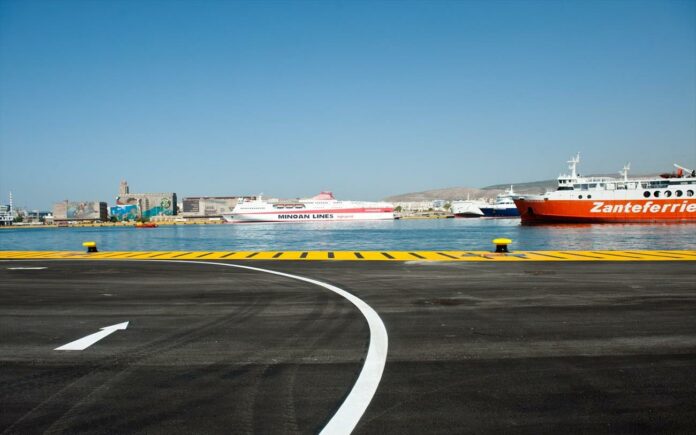By A. Tsiblakis
The Cosco-led management at the Piraeus Port Authority (OLP) is reportedly facing a barrage of recent legal and labor-related challenges months after the Chinese multinational took over Greece’s largest and busiest port, a situation resembling a corporate version of “whack-a-mole”.
Primary among the challenges is a demand by unionσ representing most OLP workers for a return to salary scales before the state cut wages of public sector employees, with the reasoning – by the unions – being that OLP is now a private sector entity.
Additionally, municipalities surrounding OLP’s perimeter have also presented demands for money they say they are due by the port, primarily from the years it was run by a state-appointed management.
Beyond the challenges faced by the newly privatized OLP, the entire shipping and commercial sector in and around the port is also anxiously awaiting to see specific initiatives by the Cosco-led management as well as the direction of its business plan. For instance, suppliers of ocean-going vessels and cargo shippers in the greater Piraeus area are concerned over the prospects that another Cosco subsidiary, Piraeus Consolidation & Distribution Center S.A., which is based in the container port, may try to carve out a monopoly in the supply sector, given the absolutely dominant position now enjoyed by the Chinese multinational.
Nevertheless, the sudden “mushrooming” of demands against OLP’s new management in tandem with incredibly ambitious expectations for a significant an immediate economic impact have, according to information garnered by “N”, irked top Chinese diplomatic officials in Athens.
The reply, always in an “unofficial manner”, is that all sides should assist in laying down the foundations for Cosco’s Greece presence in order to see future benefits.
In terms of the newly surfaced challenges, OLP’s management recently received a proposal by labor unions to renegotiate a renewal of the collective bargaining agreement for 2017, a “renewal” prospect that would reinstate the previous wage scales.
In terms of “euros and cents”, that would mean an annual payroll of 70 to 75 million euros for OLP, as opposed to today’s 55 million euros.
In a bid to pressure the port management, several unionists have reportedly have filed lawsuits seeking the retroactive re-institution of wage scales cut in 2012, by the then state-appointed OLP management — a decision that legal circles say may be unconstitutional.
If the first batch of lawsuits is successful, then a veritable “avalanche” of similar legal actions will follow to demand a return of deducted salaries.
On the revenue side of OLP’s ledger, a decision taken at the last general assembly, before management was transferred to Cosco, to proceed with a “haircut” of past arrears by ship repair and maintenance firms operated from within OLP’s perimeter is also deemed as problematic by the current management. That decision, however, has not been applied, sources told “N”.
Conversely, major port customers — as well as competitors — are still waiting to see whether Cosco will actually follow through on a previous promise to transport a massive 300K floating dry dock to Piraeus. Sources from within OLP merely noted recently that the project remains, although a feasibility and viability study must first be finished by an international consulting firm.
Finally, another “thorn” that has emerged in OLP’s side are several lower court rulings in favor of municipalities that surround the port.
According to reports, the municipality of Piraeus — the third largest in Greece — has already won a first instance decision awarding it 6.5 million euros from OLP, while similar legal challenges by a handful of other, lesser municipalities in the greater Piraeus area are pending.














